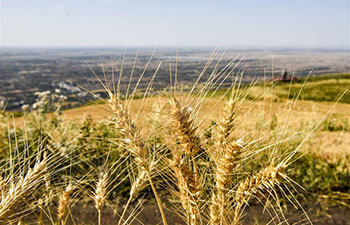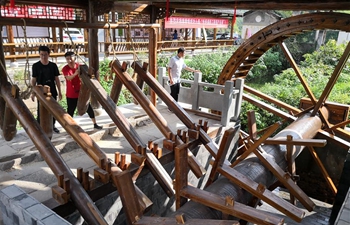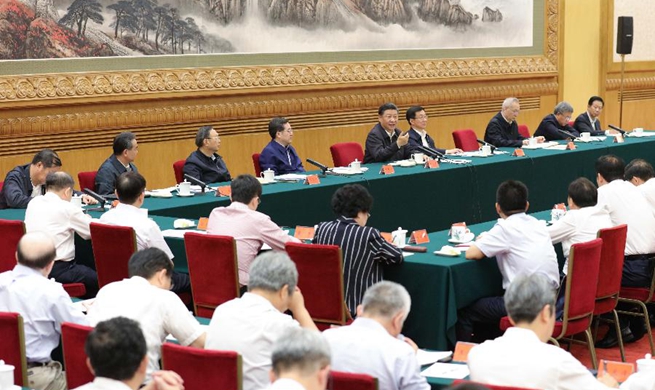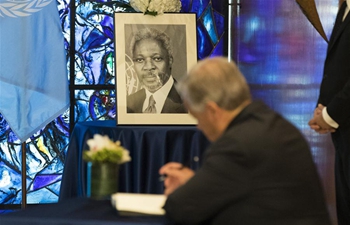WASHINGTON, Aug. 28 (Xinhua) -- Four in 10 Americans struggled to pay for their basic needs such as food or housing last year, according to a new study from the Urban Institute, a Washington D.C.-based think tank.
Despite a growing U.S. economy and a low unemployment rate, 39.4 percent of Americans between 18 and 64 years old said they experienced at least one type of material hardship in 2017, according to the study, which surveyed nearly 7,600 adults about whether they had trouble paying for housing, utilities, food or health care.
The findings came as a surprise among researchers with the Urban Institute, who had expected to find high level of hardship among poor Americans but hadn't predicted so many middle-class families would also struggle to meet their basic needs.
"Economic growth and low unemployment alone do not ensure everyone can meet their basic needs," the authors wrote in a report.
"A lot of people are looking at the fact that wages aren't keeping up with household costs as one reason families are having difficulty making ends meet," said Michael Karpman, research associate at the Urban Institute's Health Policy Center and a co-author of the report.
Food insecurity was the most common challenge, with over 23 percent of households struggling to feed their family at some point during 2017.
That was followed by troubles paying a family medical bill, reported by about 18 percent. A similar percentage didn't seek care for a medical need over concerns of the cost.
Additionally, roughly 13 percent of families missed a utility bill payment at some point during the year. And 10 percent of families either didn't pay the full amount of their rent or mortgage, or they paid it late.
The Urban Institute designed the study last year to get a baseline measure of hardship in anticipation of proposed cutbacks in federal safety-net programs, such as Medicaid, SNAP and housing assistance. Some states have already moved forward with such plans.
Low-income households reported the highest share of hardship. More than 40 percent of poor and near-poor adults, or those below and slightly above the federal poverty level, experienced food insecurity, compared with about 23 percent across all income groups.
It is the first study on the subject by the Urban Institute, which looks at economic and social policy issues. The institute plans to conduct the study annually to track the well-being of families as the economy and safety net systems change.













